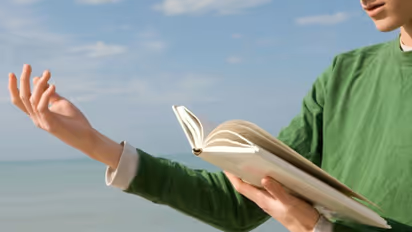World Poetry Day 2024: Why is it Celebrated on March 21? Know its history and significance

Synopsis
World Poetry Day is celebrated on March 21 to encourage the creation, publishing, reading, and teaching of poetry. Here, we look at the history and significance of World Poetry Day.
Poetry is an artistic expression in which the author may produce and communicate highly personal feelings, experiences, and hope. It is a tool that allows the poet to reflect on society while also offering resistance to injustice. As a result, the language itself gains significant importance.
March 21 is World Poetry Day, which promotes poetry writing, publishing, reading, and teaching and honours linguistic variety. Here, we examine the history and significance of World Poetry Day.
World Poetry Day 2024: History
The current World Poetry Day was founded by the United Nations Educational, Scientific, and Cultural Organisation (UNESCO) at its 30th General Conference, held in Paris, France, from October 26 to November 17, 1999. This adoption was intended to promote and preserve numerous endangered languages used in poetry.
According to UNESCO papers, the Moroccan National Commission asked that an International Poetry Day be recognised. As a result, UNESCO's Director-General convened a worldwide consultation with several non-governmental organisations (NGOs) representing poets and writers, as well as members of PEN worldwide, a writer's society, and UNESCO-connected poetry institutes.
UNESCO believed that establishing a World Poetry Day would assist to recognise regional, national, and worldwide poetry movements. Establishing such a day would promote linguistic variety and inspire young people, particularly, to write poetry in their home languages. This, in turn, would aid in the preservation of indigenous cultures that might otherwise perish as a result of decreased or absent literary usage.
National Commissions, NGOs, and public and private organisations, including schools, poetic communities, publishing houses, cultural groups, museums, and municipalities, all actively participate in World Poetry Day.
World Poetry Day 2024: Significance
Poets like Kalidasa, Rabindranath Tagore, Ramdhari Singh Dinkar, Bharathidasan, TS Eliot, and Alexander Pushkin have fascinated, stirred, and even altered readers throughout history. Poetry preservation promotes the preservation of languages and civilizations while recognising individual ability. World Poetry Day commemorates and emphasises this critical cultural preservation.
Explore the latest Lifestyle News covering fashion, wellness, travel, Food and Recipes, and more. Stay updated with trending Health News, fitness tips, and expert insights to inspire your daily living. Discover personalized lifestyle trends that keep you stylish and informed. Download the Asianet News Official App from the Android Play Store and iPhone App Store for everything that adds value to your everyday life.